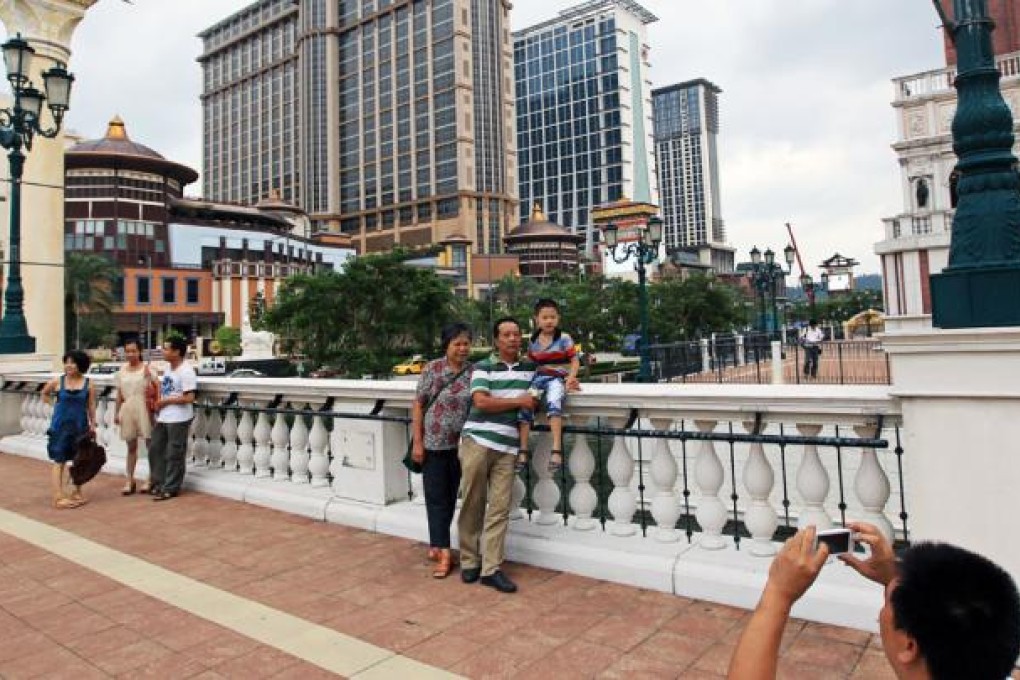Mainland Chinese influx prompts Macau to mull visitor cap
Mainlanders flocking to the city and crowding its attractions prompt experts to mull a visitor cap, despite the revenue such tourists bring

Many of Macau's tourist attractions are buckling under the weight of overcrowding by mainland visitors - a scenario many Hongkongers know only too well.
To curb the worst crowding, tourism officials have now launched a campaign to lure visitors to lesser-known attractions on the island.
A city think tank, the Macau Policy Research Office, is also assessing the feasibility of slapping a quota on visitor numbers.
"We will see how we can, through booklets, maps and signage, direct visitors from [the worst crowded] tourist areas to nearby places that are also rich in historical and cultural colour," said the director of the Macau Government Tourist Office, Maria Helena de Senna Fernandes.
Hotels will also be urged to publicise their fluctuating room rates as early as possible, to help tourists plan their trips.
The tourism chief refused to comment on whether she thought Macau should limit tourist numbers. She estimated that, as in 2012, about 28 million visitors would come to the city this year, with global economic uncertainties holding off a rise in numbers.